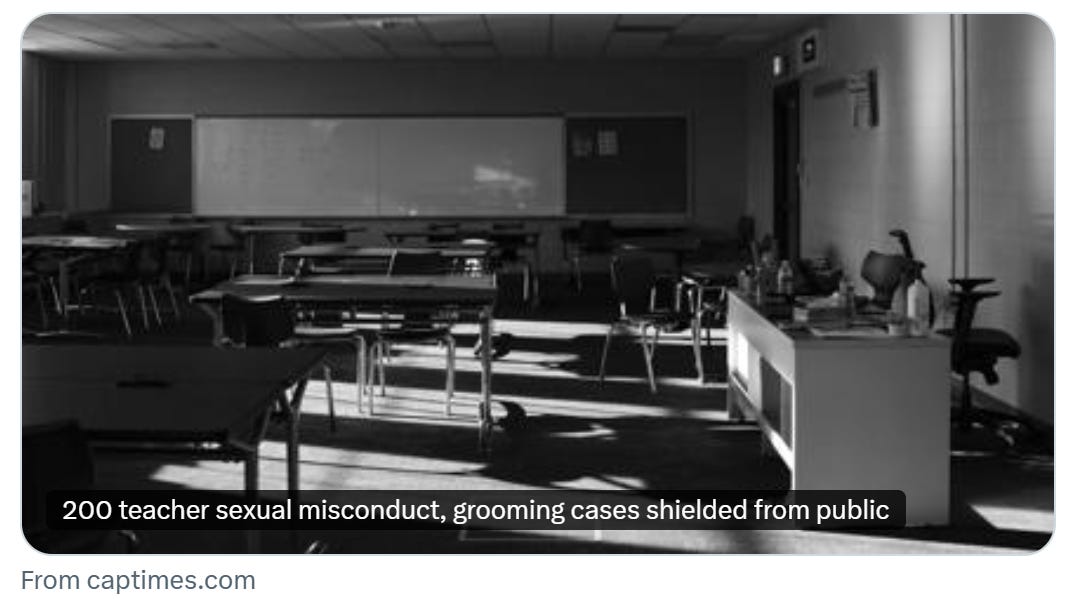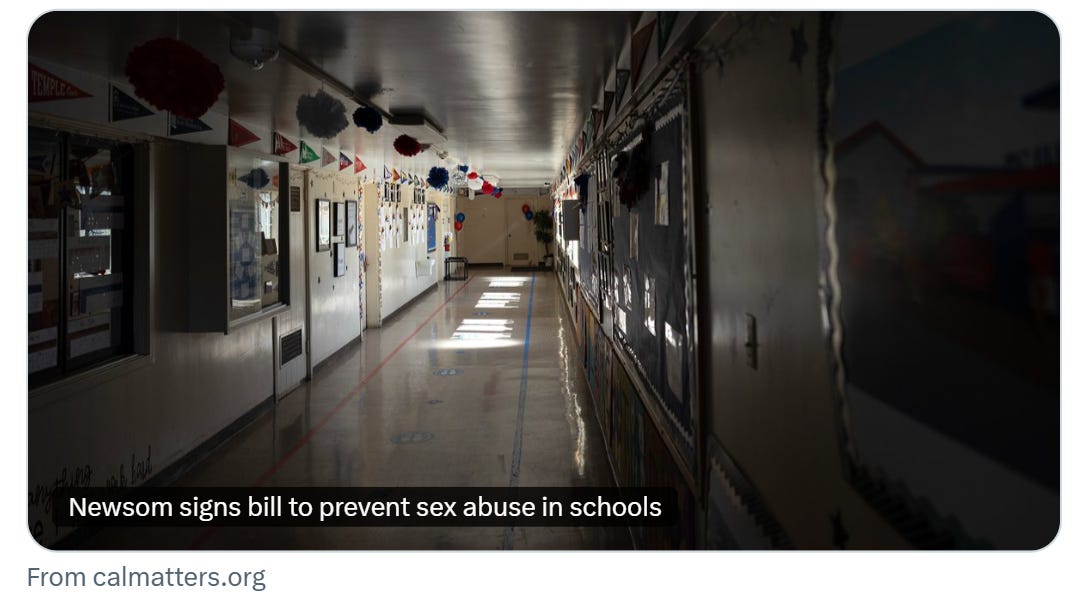How journalists can help prevent sexual misconduct in schools
School-based sexual misconduct is much more widespread than many imagine. A steady drumbeat of high-quality media coverage can help persuade lawmakers and school officials to keep more kids safe.
By Jetta Bernier, ED of Enough Abuse®
In 2025 alone to date, 16 cases of educator sexual abuse in Massachusetts have been reported by the media. These include a history teacher at the prestigious Miss Hall’s School in Pittsfield who was charged with sexual abuse by five former students and a STEM Middle Academy teacher in Springfield who was charged with sexual abuse of several middle school students.
In separate cases and within a four-month period, a Needham School District employee at the High Rock Middle School was arrested for distributing sexually explicit images of minors ages 3 – 12. Within weeks, the High School Band Director was arrested on similar charges, and an after-school staff was charged with possession and distribution of child pornography.
Other school employees arrested for sexual abuse in 2025 include a frisbee coach, a girls’ ski team trainer, an athletics director, school librarian, choral director, music teacher, gym teacher, science teacher and even a former police chief serving as a school resource officer.
Each case represents a lapse on the part of adults charged with keeping kids safe, and untold challenges for the children and teens who go through the experience. And nearly all of them could have been prevented.
Above: The just-released first installment in a new series from the Madison, Wisconsin Capital Times
School sexual abuse is an enormous problem in Massachusetts and nationwide. And yet legislators in too many states have repeatedly failed to pass comprehensive legislation that could prevent such cases.
One key factor that could help trigger change is robust media coverage of the school sexual abuse problem — and the available solutions.
In places like California where journalists and news outlets have produced powerful investigations, the state legislature and governor were spurred into action.
But in many other places, media coverage has been too intermittent to create a drumbeat of attention that helps make it impossible for lawmakers not to take action.
In Massachusetts, advocates for a decade have pushed a package of prevention bills that would require schools and youth organizations to train their staffs about child sexual abuse prevention and to adopt a code of conduct detailing specific adult behaviors that cross the line with students and must be prohibited.
It would require applicants for school positions to disclose previous investigations of sexual misconduct in another school or state, whether their professional license was ever revoked, and/or whether they surrendered it in order to stop an investigation.
The package would close the Age of Consent loophole which currently prevents District Attorneys from prosecuting persons in positions of authority who, through grooming and coercion, engage children 16 or older in sexual relationships.
Above: After a series of pieces from reporter Matt Drange and others, California’s new sex abuse prevention law was just recently enacted.
When introduced in Massachusetts in 2015, these bills became models for other states. Since then, 36 states and D.C. have passed laws mandating prevention education in schools; 18 have passed laws to strengthen the screening of prospective school hires for histories of sexual misconduct and/or to prohibit the practice of “passing the trash,” helping an employee engaged in sexual misconduct to secure a job in another school in exchange for their resignation.
Once at the forefront of this movement, Massachusetts is now among only 11 states that have yet to criminalize sexual abuse of children by adults in positions of authority, or to criminalize the production, distribution and possession of AI-generated or technologically-modified sexual images of children.
What’s holding back more reporters and news outlets from giving school sexual misconduct the attention it warrants?
Journalists and their editors at local outlets like the Boston Globe, Channel 5, Channel 25 News, the Berkshire Eagle, Greenfield Recorder, Lawrence Tribune, New Bedford Enterprise, and others have kept a steady focus on the topic through their investigative reports, opeds, and editorials.
In Massachusetts, this drumbeat by advocates and the media is paying off. This session, four of our bills are now awaiting action in Senate Ways & Means, two in House Ways & Means, and four others are expected to be favorably approved by the Judiciary Committee.
We love exchanging strategies with journalists in other states who are also committed to this crucial issue. For example, the Madison, Wisconsin CAP Times’ investigative reporter Danielle DuClos just released a series on school officials’ failure to address these cases. It promises to change the way schools and the state Department of Education respond to and keep track of such cases.
What’s holding back more reporters and news outlets from giving school sexual misconduct the attention it warrants?
Perhaps it’s the specter of long-ago false accusations against teachers.
Maybe reporters, like many other adults, struggle to comprehend that adults who abuse kids in school settings don’t look or act like monsters.
Or maybe it’s the topic’s inherent “ick” factor?
Maybe reporters, like many other adults, struggle to comprehend that adults who abuse kids in school settings don’t look or act like monsters.
Though the regularity of sexual abuse incidents in schools makes it seem that schools are the problem, they are not. Like moths drawn to the light, those who seek to exploit children are drawn to schools where they find unlimited opportunities to groom and abuse them, and the legitimate cover to get away with it.
More school districts are now demanding quality training and tested prevention policies that will stop abusers at the school door. My organization, Enough Abuse, is currently engaged with over a dozen school districts in six Massachusetts counties to implement training of their staff and the adoption of key prevention policies to proactively address boundary violations by staff, strengthen screening practices to prevent the hiring of individuals who may pose a sexual threat to children, and secure physical spaces to reduce opportunities for sexual misconduct and abuse to occur.
We have taken every available step we can to raise the awareness of elected officials and the public about this safety emergency, including publishing a listing of 125 public and private schools in Massachusetts that have been publicly reported in the media to have experienced such cases, and even the publication of photos and highlights of the charges brought against these alleged perpetrators.
With support from the media and a more informed and engaged public, we are confident that our package of prevention bills will pass this session so that schools will finally have the tools they need to strengthen their roles as safe havens for our children, and become a major solution to preventing child sexual abuse, not only in schools, but also in our homes and communities.
Pass the Prevention Package, NOW!
Jetta Bernier directs Enough Abuse, a non-partisan, independent and outcome-driven child advocacy organization with a six-decade history of improving the lives of vulnerable children. The organization prevents the sexual abuse of children in their homes, communities and online by educating parents and the public; training professionals serving children in schools and youth organizations; and advocating for policies that ensure justice for survivors, hold abusers accountable, and preventing the future abuse of our children.
Previously from The Grade
One reporter’s efforts to end ‘passing the trash’ in California schools
Inside the mind of the creepy ‘cool’ teacher
The problem education journalists are ignoring
The ‘soft spot’ to unlocking schools’ hidden secrets
How I penetrated a wall of silence to document sexual abuse of MA students
School secrets and sexual assault
Is K-12’s #MeToo moment finally here — & will journalism help play a role?
Your high school journalism teacher was a serial sexual predator




